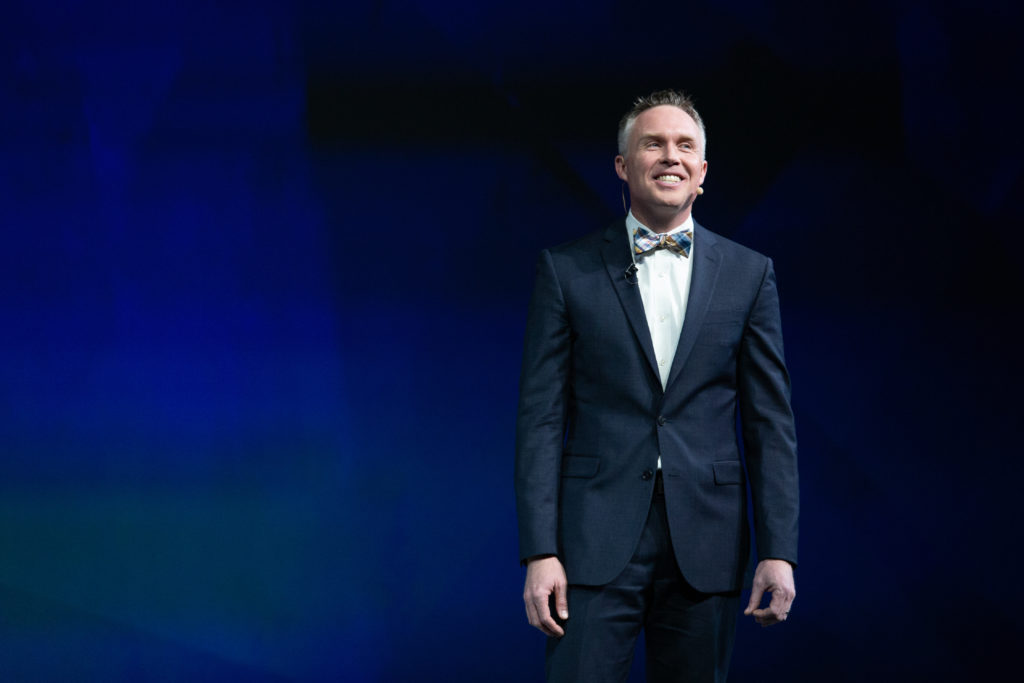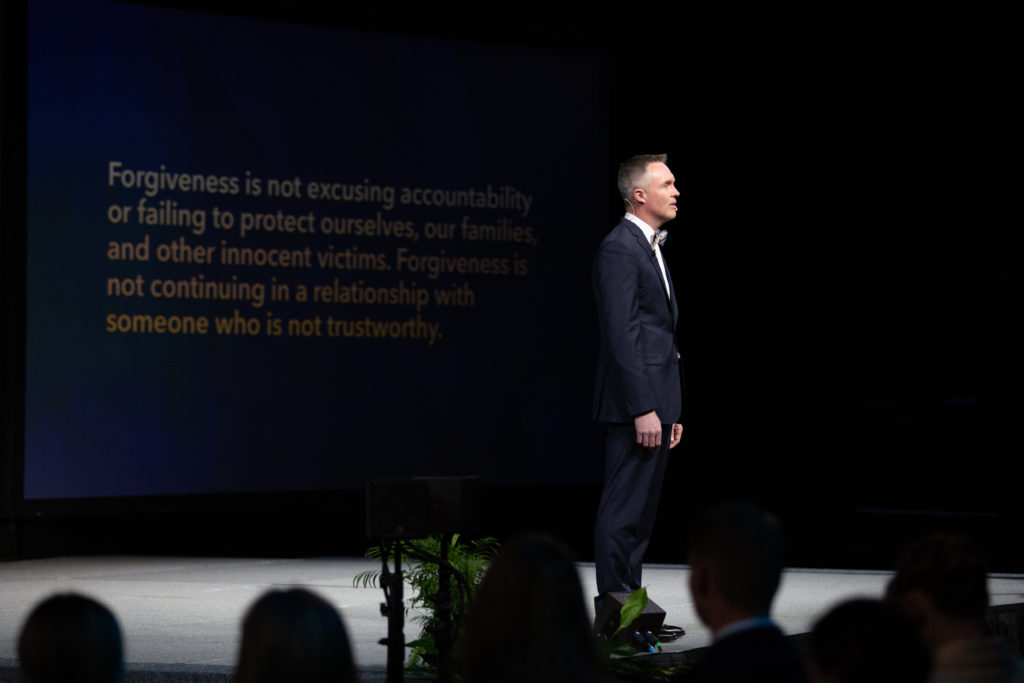BYU Assistant to the President Steven M. Sandberg taught students that the light of Jesus Christ makes forgiving others and oneself possible in a devotional address on Tuesday morning.
The scriptures teach of two types of forgiveness: God forgiving us of our sins and us forgiving each other, Sandberg said. “I want to focus today mostly on that second type of forgiving, the forgiving that we as flawed, imperfect human beings can do.”

Sandberg told various real-life stories to illustrate principles of forgiveness. On of those stories was that of Victoria Ruvolo, whose face was shattered by a frozen turkey thrown at her car by a driver on the opposite side of the road.
Ruvolo’s cheek, jaw bone and left eye socket were shattered; her esophagus was caved in; and her brain was damaged. Her attacker was 18-year-old college freshman Ryan Cushing. Despite the pain and suffering Cushing caused Ruvolo, she approached his lawyer, asking for Cushing to receive a more lenient sentence.
Sandberg quoted what Ruvolo said about her experience: “Some people don’t understand why I’ve done this. But I felt that God has given me a second chance that I want to pass on.”
Sandberg also emphasized the idea of “fore-giveness,” or deciding to forgive before anything has been done.
“Deciding that it’s something we want to be able to do prepares us to be better able to forgive other people,” he said.
Sandberg used the story of Christ’s interactions with the woman taken in adultery to show that Christ is the light that leads people out of darkness.
“I’m struck by the way The Gospel of John juxtaposes this powerful story of Christ’s forgiveness with Christ’s proclamation that He is the light,” Sandberg said. “The Savior invites each of us to be a light as we hold Him up as a light. He who made himself an offering for sin offers to each of us the opportunity to be co-healers and extend His light to those around us.”
Sandberg’s final illustration of the power of forgiveness was the story of his performance as Malcolm in the play “Macbeth” during his first semester at BYU. The actors used real swords on the stage, and subsequently, he accidentally cut the face of his friend Isaac Walters during one of their performances.
“I completely broke character and just started apologizing,” he said. “Isaac, still in character as Steward, counseling a young, distraught Malcolm, helped me keep it together long enough to finish the play. Isaac also immediately forgave me that night.”
Sandberg used this personal experience to illustrate that the people we hurt in our lives are often those closest to us who mean the most.
“It’s hardest when the hurt comes from people we love and trust,” he said.
Sandberg compared the doctrine of forgiveness to the ideals he’s seen during his work as a lawyer. He said the law attempts to distinguish between intentional and unintentional harm and is far more concerned with rules and justice than mercy and forgiveness. In contrast, the doctrine of forgiveness makes no distinction of intent, Sandberg said.
“It doesn’t matter why or how the frozen turkey or the swerving vehicle or the sword affects our life. The commandment to forgive all men doesn’t contain a caveat,” he said.

Sandberg also emphasized self-forgiveness. “This is the message I sense I’m really supposed to share with you,” he said.
“Each and every one of you, all of us who are watching or listening later on, is a beloved daughter or son of Heavenly Parents who has infinite and divine worth,” Sandberg said. “You are worth being and feeling forgiven, and our Savior wants to help you forgive yourself.”
Sandberg closed his address by expressing his love for everyone, especially those who may feel marginalized or unwelcome. “Last week, President Ballard spoke his love to all of you. I want to do the same, and tell each of you — especially those of you who feel left out, or not welcome or other here at BYU,” he said. “I want to tell you — my international sisters and brothers, my black sisters and brothers, my LGTBQ sisters and brothers, my new-to-the-faith and uncertain-of-their-faith sisters and brothers, my lowly sisters and brothers — all of my sisters and brothers, I love you. And I know that Jesus Christ and our Heavenly Parents love you.”




